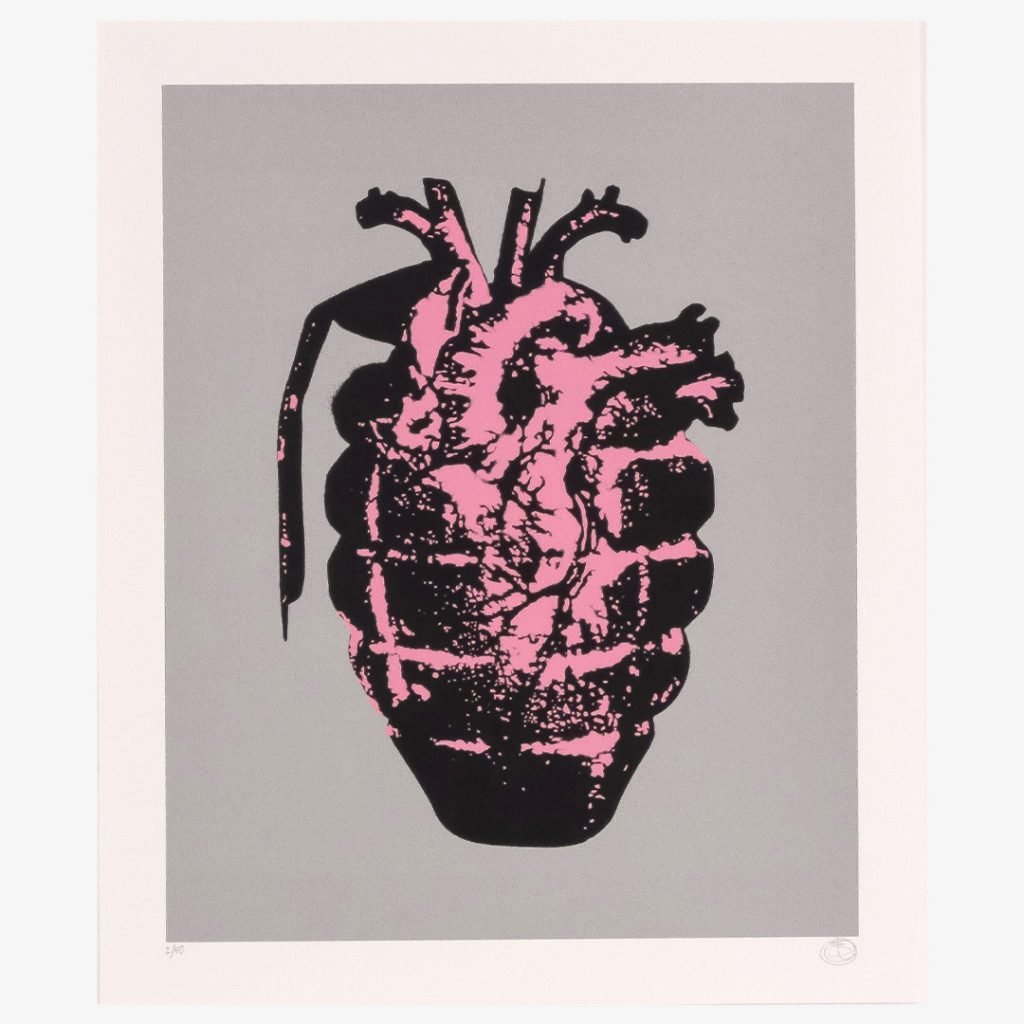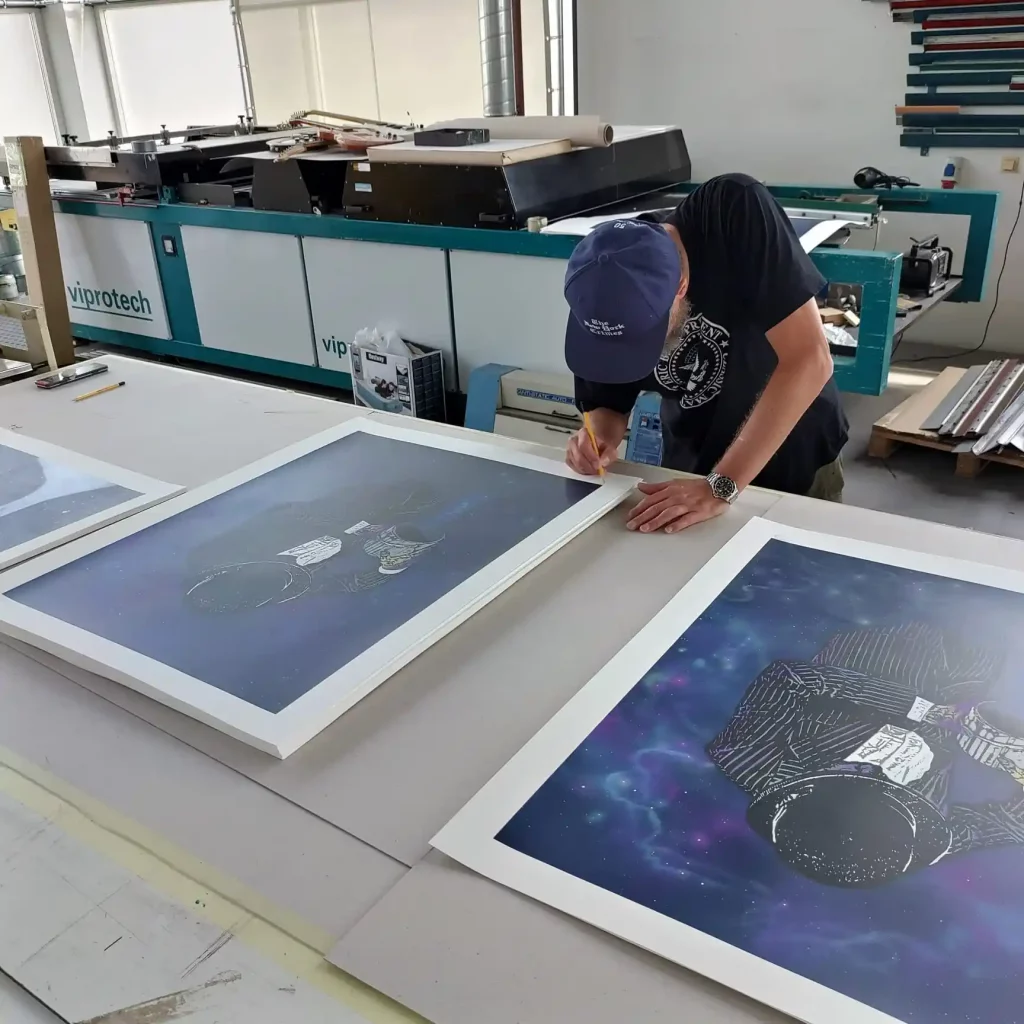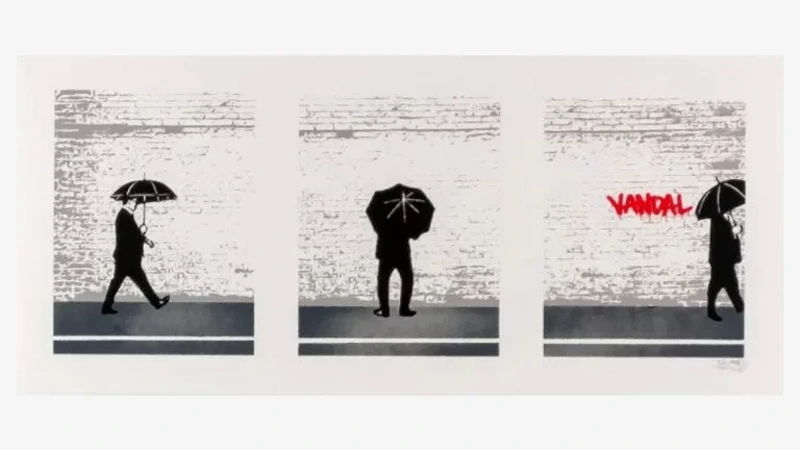Let’s settle this once and for all. What is an artist’s proof limited edition print? What’s the difference between the numbered editions and artist’s proofs, and why are limited edition prints and AP prints more valuable?
It’s no secret that limited edition art prints are increasingly becoming an art market favorite. Especially the AP versions. They are becoming an alternative to originals, but can easily spark doubt for those new to art collecting due to concerns over authenticity. So, let’s break down all these questions with some fine urban art examples.

What Is An Artist’s Proof Print?
Well, to put it in simple words, an artist’s proof is an impression of a print taken in the printmaking process to see the current printing state. Basically, the artist is checking the color and quality of the limited edition he will receive. APs are used as test prints by the artist and kept for their personal collection (nowadays they are sold at the same time as the limited edition prints and are considered to be more valuable).

Artist’s Proofs are exactly the same in terms of how they are printed, the colors, the quality of printing, the paper, etc. Artists number them, often with Roman numerals and with the mark A/P. Artists sign them too, the same as with the limited edition art prints. Sometimes, artists even add a little something to the print to make them more special and unique.

What’s The Difference Between a Limited Edition Print and an AP?
The price. Simple as that. It all comes down to this – as there are fewer artists’ proofs released they are more sought after and they come at high-end versions. You can presume to pay around 25% or even up to 50% more for an AP version, with very few (usually) appearing for sale on the secondary market.

Some AP versions tend to not have a print run number, instead, just have an AP mark in the corner. This signifies that the print is rare. Some artists like to put AP and the number out of the artist proofs available. The bottom line, it’s all about scarcity, desirability, and an AP mark. Here’s What You Need to Know When Buying Limited Edition Art Prints.

What Are Studio Proofs & Hors d’Commerce Proofs?
So, now that we know what are AP limited edition prints, let’s cover what are studio proofs & hors d’commerce proofs. When looking for Limited Edition Prints and Artist’s Proofs you may also see Studio Proofs (marked S/P on a print) and occasionally Hors d’Commerce proofs (marked H/C).

Modern printing methods mean that Studio Proofs and Hors d’Commerce Proofs are printed to the exact same quality and specification as the Limited Edition Prints and Artist’s Proofs. Studio Proofs are sometimes given by the artist as gifts or they can be sold along with the limited edition prints or held and sold separately.
![An image of limited edition print by SheOne [POP] Green, Silkscreen print Ed. 25+ 5AP, 50 x 50 cm, 2022, €280](https://2b.rocks/wp-content/uploads/2022/02/SheOne-POP-green-50-x-50-cm-silkscreen-edition-1024x1024.jpg)
Nowadays, every artist usually makes at least several prints that are meant to be shown to dealers and galleries as examples of his or her work. These prints are called Hors Commerce or Hors d’Commerce proofs, which translated from French means “do not sell”. These proofs are labeled with H.C.
Should You Buy AP Limited Edition Prints?
To conclude this one, yes. Go for it. But bear in mind that buying AP prints is a personal preference. Basically, it all comes down to rarity, if the edition is still available on the market, if the artist is living or deceased, the number of APs available, and of course the correct documentation. If it has any of these, you may wish to invest in one for your collection.

Photos: The Art of Nick Walker

Leave a Reply